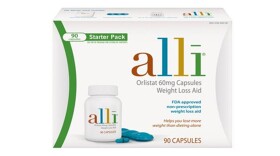Nancy Shute
-
Marathons are increasingly popular with people who will never cross the finish line in under three hours. But do recreational runners benefit from the intense training? Researchers in Boston say yes.
-
The bottles that appear to have been tampered with contained tablets and capsules in various shapes and colors, rather than the turquoise capsule used for the over-the-counter medication alli.
-
Defiance and other behavior problems are common in children, and counseling can help. Offering mental health care at the pediatrician's office made it much more likely that children would attend.
-
Women can give birth in water at a growing number of hospitals, but the nation's pediatricians and obstetricians say there's not enough proof that it's safe. Midwives say it's fine for many women.
-
Evidence has long suggested that exercise may help prevent breast cancer. After looking at cancer risk in 4 million women, French researchers concluded any type of exercise is beneficial.
-
Despite evidence to the contrary, many Americans believe cellphones cause cancer and that health officials are covering it up. Discredited theories about vaccines and fluoridation also remain popular.
-
In 2010, 15 percent of people who went to the doctor for a headache got a brain scan, even though the vast majority of headaches aren't symptoms of something seriously wrong.
-
Screening for colon cancer actually prevents the disease, but one-third of people over 50 have never been screened. A new campaign hopes to get 80 percent of eligible people screened by 2018.
-
Teenage boys are still the primary users of stimulant medications to treat ADHD, but increased use by adults, particularly young women, has fueled a 36 percent rise in prescriptions in five years.
-
An analysis of research on the cholesterol-lowering drugs shows that most side effects are no more common with them than with placebo drugs. But statins can raise the risk of diabetes.










